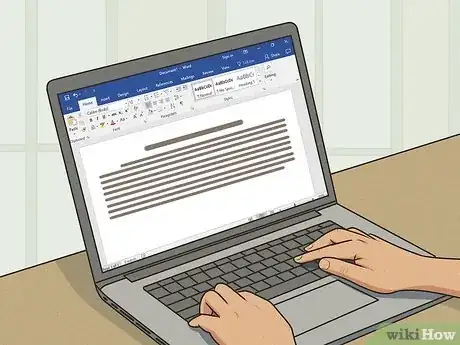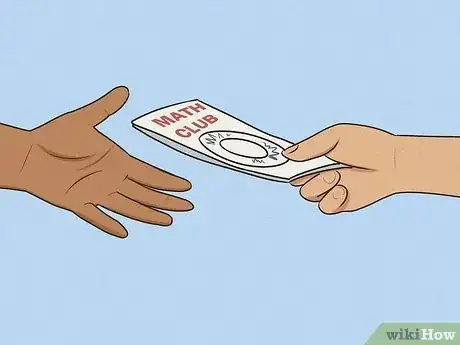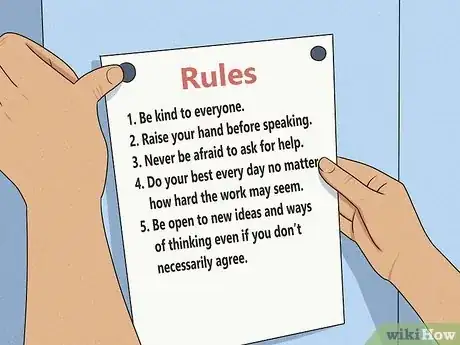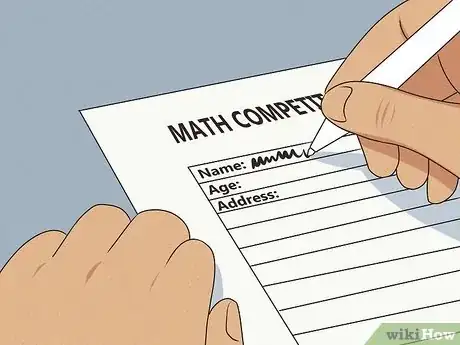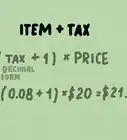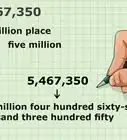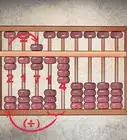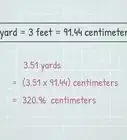This article was co-authored by Ashley Pritchard, MA and by wikiHow staff writer, Ali Garbacz. Ashley Pritchard is an Academic and School Counselor at Delaware Valley Regional High School in Frenchtown, New Jersey. Ashley has over 3 years of high school, college, and career counseling experience. She has an MA in School Counseling with a specialization in Mental Health from Caldwell University and is certified as an Independent Education Consultant through the University of California, Irvine.
There are 15 references cited in this article, which can be found at the bottom of the page.
Who says math can’t be fun? Starting a math team is a great way to provide an opportunity for students to practice and improve their math skills outside of class time, while also allowing them to socialize with their peers who have a similar interest. We’ll walk you through everything you’ll need to do so that your middle school math team can hit the ground running, and you can get your students excited about the wonderful world of math!
Things You Should Know
- Set the groundwork by recruiting other staff or volunteers and deciding a place and time to meet.
- Draw in interested students by using a variety of advertising methods.
- Create a mix of practice problems and fun activities to bring to every session.
- Register your team for math competitions and promote your achievements to the greater community.
Steps
Check your school’s policies and requirements.
-
Research what you’ll be asked to submit when starting a math team. There may be specific rules put in place to make sure that whatever club or extracurricular you are starting adheres to the school’s and school districts’ overall mission and vision, as well as ensure that your planned extracurricular will be safe and appropriate for students. Here are some examples of what may be needed from you before even really getting started:[1] X Research source
- A name for your extracurricular
- A description of the extracurricular and what activities will take place
- A designated faculty adviser
- Signatures from potential members
- A plan that outlines the structure of your meetings
- A proposal form
Plan ahead for various costs and events.
-
Think ahead about what resources and permissions you’ll be needing. Alongside the various forms you’ll likely need to submit, you’ll also need to come up with a plan in terms of more logistical matters. Some things you’ll need to think about include:[2] X Research source
- Planning a budget for funding things such as transportation, team t-shirts, and food.
- Getting permission for transportation to competitions in accordance with school and district policies.
- Some alternatives to this would be asking for funding for bus transportation or simply having students arrange their own rides.
- Hosting events such as mail-in competitions, guest speakers, and fundraisers will also require you to get your school’s permission well in advance.
Create a mission statement.
-
Come up with a mission statement that summarizes your team’s values. Not only will this help you in the case that you need to present an official proposal to your school’s administration, but it will also give you something more specific to tell interested students and parents. It will also act as a good foundation that you can reference when you really get into running the team so that you can make sure you’re staying on track with your original intentions. Ask yourself:[3] X Research source
- What is the purpose of your math team? What are the needs and opportunities you will address?
- What will you do to address those needs?
- What values will create the foundation of your math team?
Recruit people to help you.
-
Promote your math team to other staff and potential volunteers. Having other staff to help you run your math team or assist with classroom management can be extremely helpful down the line. This is especially true if you’re going to have to be managing lots of small groups and catering to a diverse group of students who are all at different levels in math.[4] X Research source
- You can also look into recruiting parent volunteers or other community members who will be able to get the necessary approval to work at your school.
Start recruiting students.
-
Use a variety of tactics to gain student interest. You can’t have a math team without any team members. Get creative with your promotion strategies, and reach out to both students and parents who may want to know more. Recruiting earlier in the year will also give you more time to get more students interested.[5] X Research source Some ideas for recruiting include:[6] X Research source
- Making posters and flyers to put up around your school
- Posting on your school’s website or other social media accounts about your math team
- Publishing a brief introduction to the math team in your school’s newsletter
- Giving an informative presentation during class time
- Hosting virtual or in-person information sessions for both students and parents
- Offering free things like pizza or small prizes at your first meeting to get students interested in attending.
Decide where and when to have meetings.
-
Choose a specific place and time to hold math team meetings. Once your math team has received approval, set regular meeting times. These can be weekly, biweekly, monthly, or any other frequency that’ll work for you and your students. Be sure to secure a place where you can hold your meetings that will comfortably accommodate however many attendees you’ll be hosting.[7] X Research source
- Talk with your school principal about any empty classrooms or office space that may be available.
- Inquire about hosting meetings outside of the school building, such as at a local library, and if that’s permitted.
- If you start the team early enough, students probably won’t have joined many other clubs and will most likely have more of an open schedule to fit the math team in.[8] X Research source
Plan out activities for meetings.
-
Come up with a list of activities you want to do at each meeting. This is the core of running your math team. Decide what concepts you’ll want to focus on at each meeting and plan activities, games, and practice problems for your students. If your math team is competing in a math competition, structure your meetings around preparing, but also be sure to throw in some fun games to give students a mental break.[9] X Research source Some ideas for games and activities include:
- Math competition practice problems. This will help students get used to the format of competition questions as well as the rigor of competitive-style math.
- Reviewing homework. This is a great way to cement some of the harder topics that may have been covered in class.[10] X Research source
- Exponent Battle. This is a fun and simple card game that helps students practice multiplying out exponents.[11] X Research source
- What Would Pythagoras Do? This is an activity where students use the Pythagorean Theorem to figure out how many feet of lights will be needed to decorate the roof of a house.[12] X Research source
Prepare an itinerary for future meetings.
-
Come up with an outline for what you will cover at meetings. This can be as detailed as listing out specific activities that you will be doing at the meeting, or can be made more general by simply listing out topics. Either way, having a sort of road map will not only help you with planning, but will also be a good resource for students so that they know what to expect at each meeting.[13] X Research source
- This is also a good item to show your principal and parents of students as proof of how you’re running the team.
Set rules for your team.
-
Create a list of rules for students to follow during meetings. These can include rules about behavior, attendance, assignments, and anything else you think could be helpful. Let your students also participate in making rules so it feels more like a team effort. Some rules you might set could be:[14] X Research source
- Be kind to everyone.
- Raise your hand before speaking.
- Never be afraid to ask for help.
- Do your best every day no matter how hard the work may seem.
- Be open to new ideas and ways of thinking even if you don’t necessarily agree.
Help students create goals.
-
Have your students set goals both for themselves and for the team. Give your students something to work towards during meetings by helping them to set individual and group goals. These can be a mix of short and long-term goals, and should focus on realistic things that students will be able to accomplish. These could be things like “I will learn one new thing every meeting,” or “Our team will compete in one competition this year.” Try writing SMART goals, which use the following criteria:[15] X Research source
- Specific. What needs to be accomplished? Who’s doing it? What steps need to be taken?
- Measurable. Add a specific quantity to track your progress more easily.
- Achievable. Your goal should be within your ability to eventually achieve.
- Relevant. How does this goal fit into the bigger picture?
- Time-bound. By when will you achieve this goal?
Register your team for competitions.
-
Research math competitions and register your team to participate. If one of the goals of your math team is to compete in local or national math competitions, do your research into competition types, dates, and registration requirements so that you don’t miss out on any big events. After you’ve registered, look into any practice materials the competition may have provided that you can cover during meetings. Some national middle school math competitions include:
- Absolute Value: Hosts math/puzzle competitions for middle schoolers with a focus towards creating a fun and collaborative environment.[16] X Research source
- AMC 8: A contest for students in grades 8 and below that is hosted annually by the American Mathematics Competitions (AMC) to students all across the US.[17] X Research source
- Beestar National Competition: The largest online math competition for students in grades 2 through 8.[18] X Research source
- MATHCOUNTS: This competition offers 4 levels of live, in-person competitions throughout the year–school, chapter, state, and national.[19] X Research source
Keep the community up to date.
-
Stay engaged with the community by sharing news about the math team. This is a great way to keep team members’ families, as well as the greater community, up to date about what’s happening in your math team. It’s also an excellent way to continue promoting your math team so that you can continue to get new members. Some ideas for maintaining this line of communication are:[20] X Research source
- Creating a math team website, blog, or Facebook group where you can post updates about the team and schedules for future activities.
- Sending out a weekly, bi-weekly, or monthly newsletter to keep students’ families up to date
- Posting in your school’s newspaper or newsletter about the math team’s achievements and upcoming activities
You Might Also Like

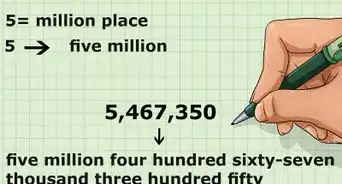
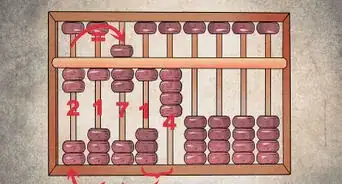
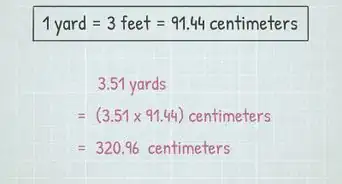


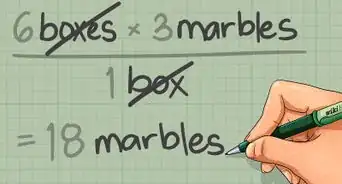
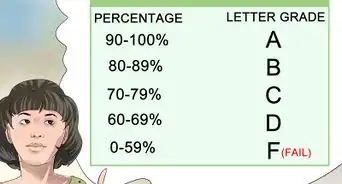
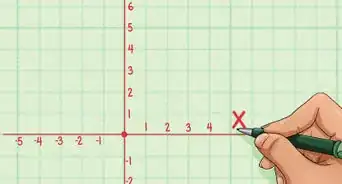
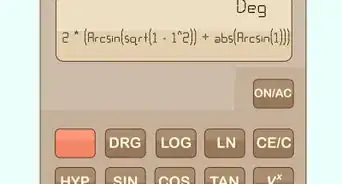

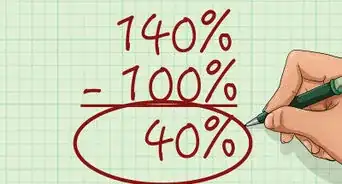
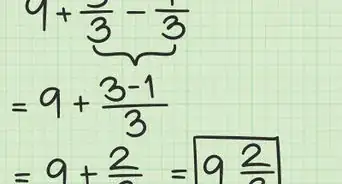
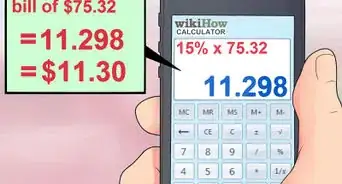
References
- ↑ https://www.theclassroom.com/start-club-school-4324.html
- ↑ https://www.wastudentmath.org/content/clubs/plan/StarterPackComprehensive.pdf
- ↑ https://www.usaswimming.org/docs/default-source/clubsdocuments/governance/how-to-write-a-vision-and-mission-statement.pdf
- ↑ https://www.eiu.edu/youtheducators/EClub5Steps.pdf
- ↑ https://www.wastudentmath.org/content/clubs/plan/StarterPackComprehensive.pdf
- ↑ https://classrooms.com/6-student-organization-recruitment-strategies-to-find-new-members/
- ↑ https://www.theclassroom.com/start-club-school-4324.html
- ↑ https://www.wastudentmath.org/content/clubs/plan/StarterPackComprehensive.pdf
- ↑ https://artofproblemsolving.com/blog/articles/pros-cons-math-competitions
- ↑ https://www.wastudentmath.org/content/clubs/plan/StarterPackComprehensive.pdf
- ↑ https://www.learn-with-math-games.com/exponent-game.html
- ↑ https://www.carnegielearning.com/blog/3-winter-math-activities-middle-school/
- ↑ https://my.vanderbilt.edu/nashvillemathclub/for-current-students/
- ↑ https://www.splashlearn.com/blog/best-classroom-rules-how-to-make-your-own-classroom-rules/
- ↑ https://www.forbes.com/advisor/business/smart-goals/
- ↑ https://absval.org/
- ↑ https://artofproblemsolving.com/wiki/index.php/AMC_8
- ↑ https://www.beestar.org/exam?cmd=natl_cp&type=intro
- ↑ https://www.mathcounts.org/programs/competition-rules-faq
- ↑ https://www.wastudentmath.org/content/clubs/plan/StarterPackComprehensive.pdf
About This Article



